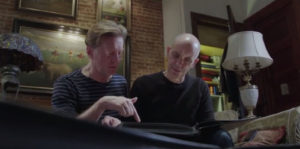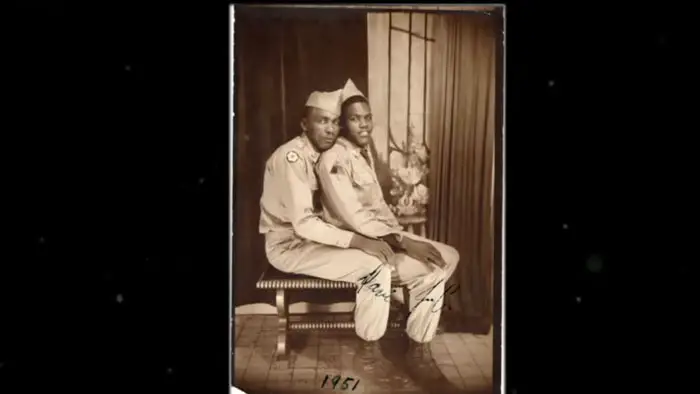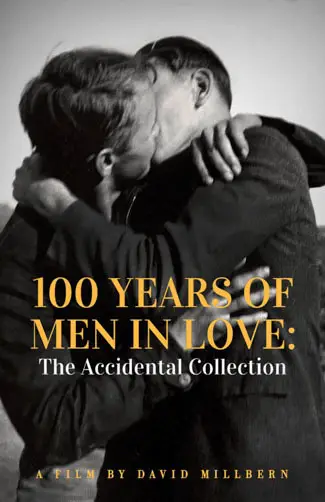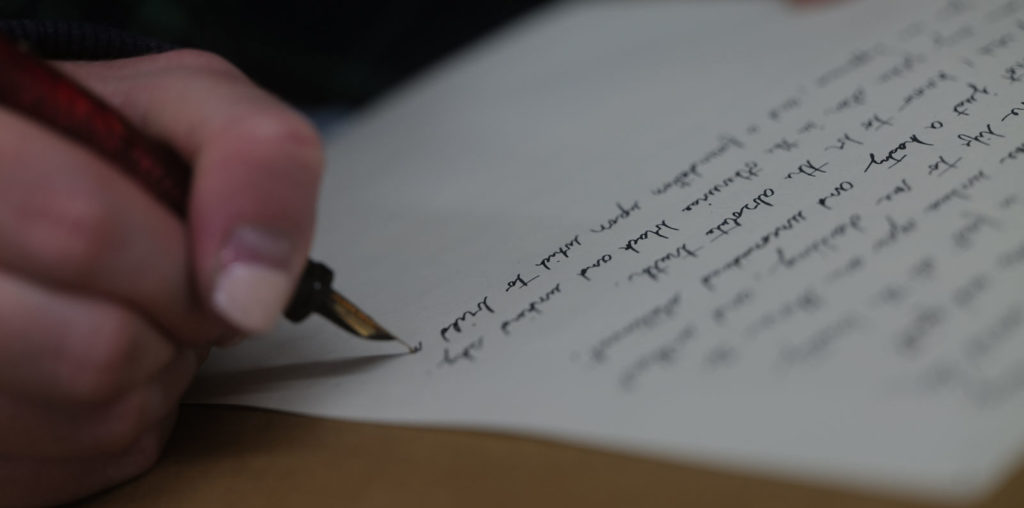
Dallas couple Hugh Nini and Neal Treadwell open the documentary 100 Years of Men in Love: The Accidental Collection with an explanation of how their collection came to be. The two made it a routine to visit local antique stores after church on Sundays. During one chance encounter, the pair discovered an old photograph of two men in an affectionate pose during a time it wasn’t exactly accepted. This started Nini and Treadwell on a path to finding more images like that. Since then, they’ve amassed a collection of what has become hundreds of vintage pictures of gay couples in love.
Writer-director David Millbern has created a sweetly wistful film based on the couple’s book LOVING: A Photographic History of Men in Love, 1850-1950, that skims the surface yet still manages to convey its heartfelt message: love is love. Between interviews with Nini and Treadwell and montages of their collection, we take an eye-opening trip to the past. Organized by levels of shown affection, we start with the seemingly platonic pictures of men standing together. Forensically our hosts point out the subtle nature of masked affections. Perhaps a hand is a little too close to the other’s or a leg closer than would be socially acceptable.

“…the pair discovered an old photograph of two men in an affectionate pose during a time it wasn’t exactly accepted.”
Then we get into the more overt signs that a pair is actually a couple. One of the more touching stories comes about midway through when John and Ariel are discussed. “The two sad sacks from Texas,” as they called themselves, served during World War II together, actually being a part of the team that liberated the concentration camp at Dachau. When the documentary has the ability to go deeper than the picture, that is when it really shines and begins to attain depth.
On the surface, 100 Years of Men in Love: The Accidental Collection is an unparalleled archive of gay culture in America, not to mention a swooning ode to romance. Yet it rarely goes beyond what can be surmised from the pictures. Oh, if only it had! Regardless, Millbern successfully makes the argument that love, despite the passage of time, endures like an old picture.

"…an unparalleled archive of gay culture in America, not to mention a swooning ode to romance."


